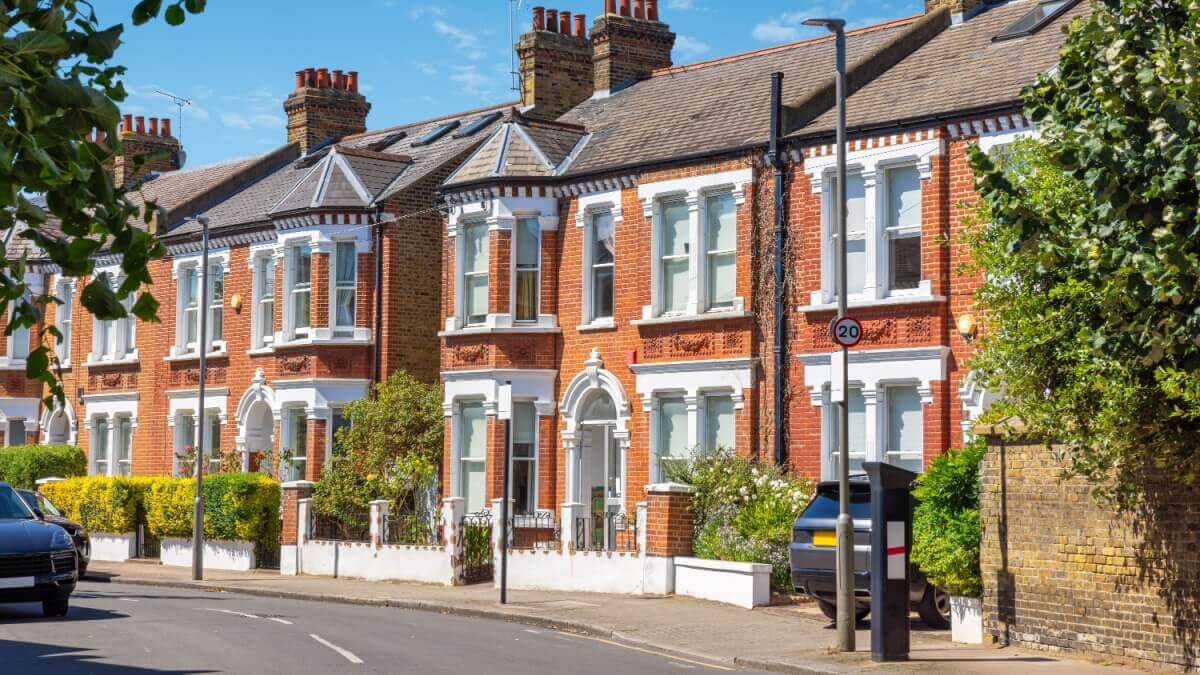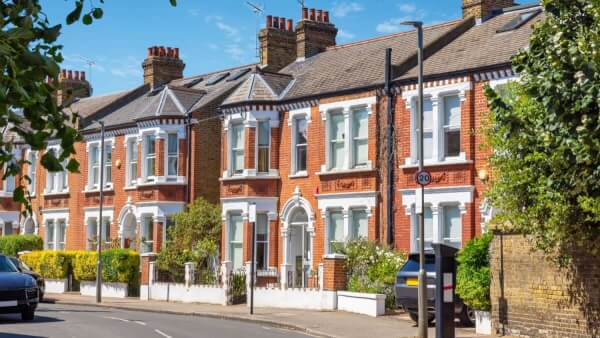Selling property in the UK as a non-resident: Complete guide
Read our comprehensive guide for non-residents selling UK property, including fees, taxes and timescales.

Just moved to the UK and want to buy your own home? Before you can start house hunting, you’ll likely need to apply for a mortgage in order to fund your purchase.
In this comprehensive guide, we’ll run through everything you need to know about getting a mortgage in the UK as a foreign national. This includes the documents you’ll need, how easy/difficult the process is and some UK banks and lenders to check out.
If you’re looking for ways to save money on currency exchange when sending a down payment or mortgage fees from overseas, check out the money services provider Wise. You can send large transfers with Wise for low fees* and great mid-market exchange rates - making it ideal if you’re sending a secure international transfer.
It’s much easier to get a UK mortgage if you’ve moved there, whether it’s to work, start a business, be with family or retire.
The good news though is that it is possible to get a mortgage in the UK if you’re not living there, but there are likely to be restrictions involved.
For example, banks like HSBC will only offer residential mortgages to non-UK residents if they live in countries where the bank operates. This includes the USA, Singapore, Australia, Hong Kong or the UAE among others.¹
Other lenders like Skipton Building Society (via its international arm) only offer Buy-to-Let mortgages to non-residents.²
In most cases, you’ll find that the requirements for application are more rigorous than for UK nationals and residents. For example, you may need a minimum income, extensive proof of funds and/or evidence that you can speak a proficient level of English.¹ We’ll cover this in more detail shortly.
For citizens of many countries, the UK leaving the European Union (EU) has made little to no difference to the process of getting a mortgage for foreigners in the UK.
However, it has made it more complex for EU nationals. Since Brexit, the rules require mortgage lenders to see evidence of ‘settled’ status under the EU settlement scheme. This is granted when an EU national has lived in the UK for a continuous five-year period.³
In some cases though, lenders will accept applications from people who’ve lived in the UK for at least three years.⁴
So, you’ll need to check the requirements for your chosen mortgage lender, to make sure you’re eligible to apply.
The criteria for mortgage applications will vary between lenders. But generally speaking, you may need to meet the following requirements:¹
If you meet the criteria, getting a mortgage in the UK can be relatively straightforward. Be prepared for plenty of paperwork though, along with detailed questions about your income and spending habits.
However, there are some challenges that can make it more difficult. For example, you might not be able to get a mortgage if you have a poor credit history, an unbalanced debt-to-income ratio or gaps in your employment history. Self-employed people sometimes struggle to secure a mortgage.
And for foreign nationals, there may be other obstacles to overcome. You may not have enough of a credit history in the UK, or meet other requirements such as minimum salary or deposit. You might need to show more documentation, or be asked for extra information - which can slow down the process.
There may also be the complication of your documents being in another language, where they need to be translated and certified.
To give you an idea of what to expect, here’s a step-by-step look at the process of applying for a UK mortgage as a foreign national:
Once this is done, you can get on with buying your property in the UK. This means appointing a solicitor for the legal work, commissioning a building survey and agreeing a completion date. On this date, the mortgage funds will be paid and you’ll become liable for the mortgage repayments.
| 💡 Read more: Taking cash in or out of the UK: What are the rules? |
|---|
The exact documents you’ll need to apply for a UK mortgage as a non-resident will vary between lenders. But here’s an idea of what you’re likely to need:⁶
If applicable, you might also need to provide your visa or biometric residence permit.
On average, it takes around 2 to 6 weeks to get a formal mortgage offer after submitting your application.⁷

Applying for a UK mortgage comes with a few different fees. The main ones to know about are booking fees, arrangement fees and valuation fees.
This is a fee sometimes charged by lenders to ‘reserve’ the mortgage deal. It’s not always charged, and some lenders include it in the arrangement fee instead.
If there is a booking fee, it’ll be charged on application and is usually non-refundable. It’s typically around £99 to £300.⁸
Also known as the product fee or completion fee, it’s the main fee for taking out the mortgage. It’s charged on completion, and can either be paid upfront or added to your mortgage balance. It can be anywhere up to £2,000, although some mortgages don’t have any arrangement fee.⁸
If the mortgage company needs to carry out a valuation of the property, they may charge a valuation fee of around £250 to £1,500.⁸ The exact fee may depend on the value of the property. It’s important to note that this valuation survey only looks at the value of the property, and won’t identify any structural, maintenance or other issues. You’ll need to commission your own building survey for that.
You may also encounter some of these other charges when applying for a UK mortgage:
All major banks and building societies in the UK offer mortgage products, but they might not all have a service suitable for expats, or non-residents.
It’s worth checking out the products offered, as they come with fairly strict terms and conditions.
Ultimately, the decision about who is eligible for a mortgage or home loan is made by the institution. It’s worth calling into the local branch of banks which you’re interested in, for a chat about which products might suit you - or enlist a broker to help.
You might be able to get a local mortgage with one of the following banks:
| 💡 Read more: How to transfer large sums of money between bank accounts? |
|---|
Here’s a quick look at average mortgage interest rates in the UK, including rates for non-resident mortgages:
| Mortgage type | Average rate (as of August 2024) |
|---|---|
| Five-year fixed mortgage | 4.74%⁹ |
| Two-year fixed mortgage | 5.10%⁹ |
| Non-resident fixed mortgages (based on 75% Maximum Loan to Value (LTV) with HSBC) | 4.55% to 5.39%¹ |
These rates are accurate at the time of writing (04/09/24) but they change regularly - so you’ll need to check the updated rates when you’re ready to apply for your mortgage. The rate you’re offered will also depend on your circumstances and eligibility, the amount you’re borrowing and how much of a deposit you have.
Yes, a number of banks in the UK offer Buy-to-Let mortgages. These are mortgages designed specifically for buying UK property as an investment, which you intend to rent out to tenants.
You’ll find that major banks such as HSBC and NatWest offer Buy-to-Let mortgages to non-residents looking to invest in UK property, along with other lenders such as Skipton International.
It’s also possible to refinance a mortgage in the UK, which is known as ‘remortgaging’. You may want to do this to get a new mortgage once a fixed-term mortgage has ended, or to get better interest rates once you’ve built up equity in your home.
Remortgaging can also help you borrow more money, such as to fund another property purchase without having to sell your first property. You’ll just need to make sure you can afford the repayments and aren’t overstretching yourself.

There are a few different mortgage types available in the UK, and it’s important to choose the right one for your circumstances.
The main types to know about are - fixed-rate mortgages, tracker mortgages and standard variable rate (SVR) mortgages. Additionally, there are different ways to repay, including capital repayment and interest-only options.
A fixed-rate mortgage has a fixed interest rate for a set period, which in the UK is usually 2, 3 or 5 years. This means you’ll know exactly how much you’re repaying each month.
Once the fixed term ends, you’ll be automatically moved onto a variable interest rate. At this point though, you can choose to remortgage - either with the same lender or an alternative.
Tracker mortgages in the UK have an interest rate which rises or falls in line with the Bank of England’s Base Rate. It’s usually the Base Rate, plus a margin added by the lender.
This type of mortgage is what you’ll be switched to when a fixed term mortgage ends. It has a variable interest rate, decided by the lender and which can change at any time.
There are also mortgages which vary based on the way you make repayments. Capital repayment is where you pay the amount you’ve borrowed plus interest, while interest-only is where you just pay off the interest.
To stand the best chance of getting accepted for a UK mortgage as a non-resident, bear these tips in mind:
If you have funds in other currencies than the British pound, sending your deposit and mortgage fees to the UK may incur hefty transfer and exchange fees. This is where Wise and the Wise account can help you save money.
Open a Wise account online and you can start managing your money in 40+ currencies (including GBP). It’s not a bank account but offers many similar features.
Here’s an overview of the main benefits for using Wise: |
|---|
|
Sources used:
Sources last checked on date: 04-Sep-2024
*Please see terms of use and product availability for your region or visit Wise fees and pricing for the most up to date pricing and fee information.
This publication is provided for general information purposes and does not constitute legal, tax or other professional advice from Wise Payments Limited or its subsidiaries and its affiliates, and it is not intended as a substitute for obtaining advice from a financial advisor or any other professional.
We make no representations, warranties or guarantees, whether expressed or implied, that the content in the publication is accurate, complete or up to date.

Read our comprehensive guide for non-residents selling UK property, including fees, taxes and timescales.

Read our comprehensive guide to selling property in the US, including fees, taxes, timescales and a step-by-step guide to the process.

Read our comprehensive guide to selling property in Switzerland, including fees, taxes, timescales and a step-by-step guide to the process.

Read our comprehensive guide to selling property in Portugal, including fees, taxes, timescales and a step-by-step guide to the process.

Read our comprehensive guide to selling property in Malta, including fees, taxes, timescales and a step-by-step guide to the process.

Read our comprehensive guide to selling property in Australia, including fees, taxes, timescales and a step-by-step guide to the process.